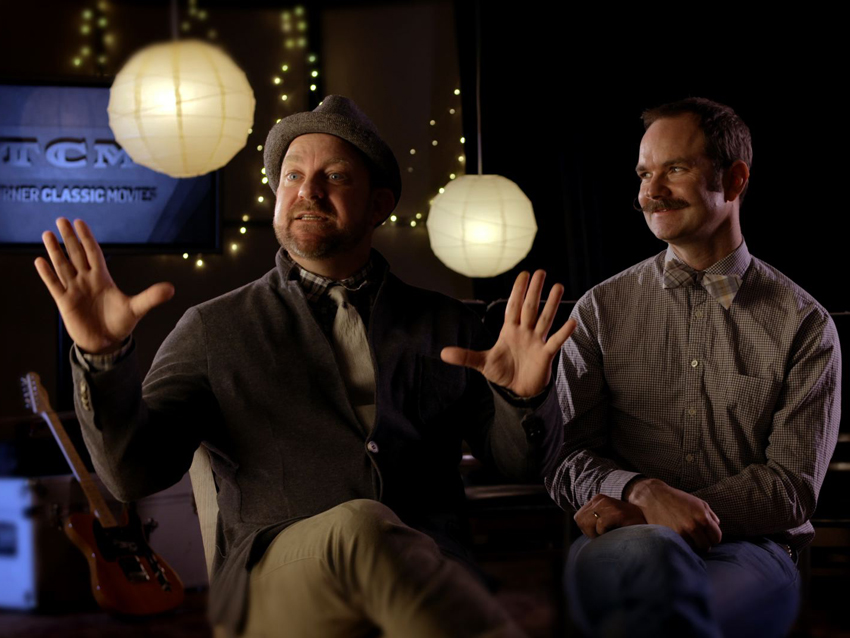
The Bush brothers pick 10 essential film scores
Several years ago, Sugarland's Kristian Bush and his brother Brandon, a former member of the band Train who also plays keyboards for Sugarland, were channel surfing on their tour bus when they stumbled across Turner Classic Movies, a station they had never really noticed before.
"The first thing that hit us was the fact that there were no commercials," Kristian says. "When you're trying to unwind after a show, you really want something immersive. We got pulled right in – it was so experimental, and it's curated content. Both of us were hooked right away, and over time, we became real TCM fans.”
Once back home in Atlanta (which, coincidentally, happens to be where TCM is headquartered), the Bush brothers contacted a few of the station's execs and suggested a breakfast meeting to throw around some ideas. "Not only were they crazy enough to say yes," Kristian says, "but when we asked, 'Why don't you guys let us score something for you?' they said yes to that too. We thought it was a high-risk idea, but they jumped right in."
The Bushes holed up in their Decatur studio, The Projector Room, and Atlanta's Crawford facility and assembled a small group of area players to cook up the music to an insanely clever 30-second on-air promo spot that trips through the history of cinematic scoring with audio homages to King Kong, Psycho, Dr. No and To Kill A Mockingbird. "In one piece of music, we're paying tribute to Max Steiner, Bernard Herrmann, John Barry and Elmer Bernstein," says Brandon. "Putting all the cues together and making them work seamlessly took some doing, but I think we got it in the end."
Kristian, who will be releasing his debut solo album sometime this year, is currently on tour ahead of the release of his debut solo album, while Brandon, a studio musician with credits on over 100 recordings, serves as musical director and keyboardist for his brother's five-piece band. Both Bushes insist that a move into proper film scoring lies in their future. "It's another avenue of storytelling that we really enjoy," Kristian says.
“As a business and as publishers and songwriters, it’s what we’re pursuing," Brandon adds. "Doing the TCM shot sure whetted the appetite. Of all the things I’ve done as a musician, nothing beats the feeling of having a score laid out in front of me and seeing musicians on the other side of the glass. Hearing music brought to life by other musicians – it’s hard to supersede how awesome that is.”
On the following pages, Kristian and Brandon Bush run down their picks for 10 essential film scores.
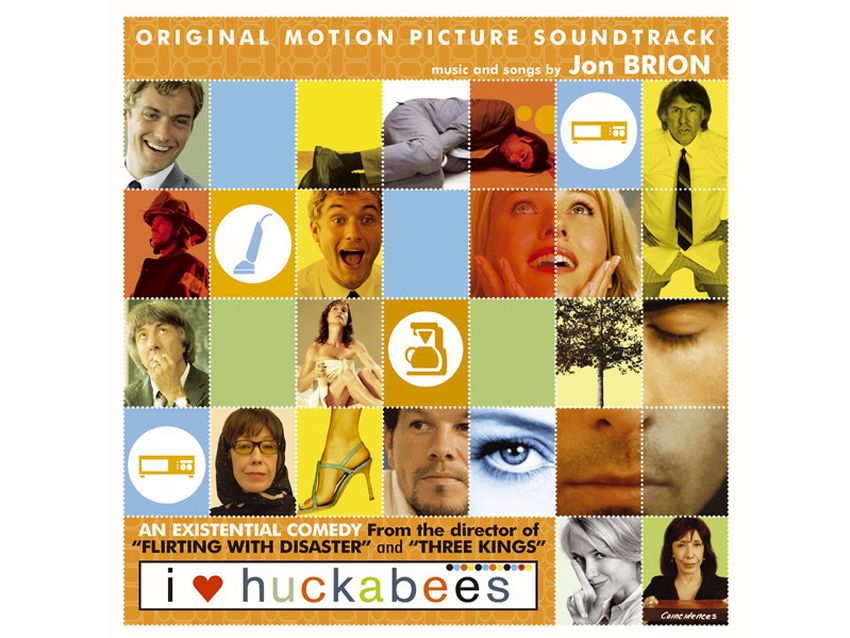
I Heart Huckabees (2004)
Brandon: “I’m a huge Jon Brion fan. What’s so cool about this score – and he does this in a lot of films – is that he goes from underscore to pop songs. His lyrics and singing fit so well in the movie, but the transition from underscore to the songs is really lovely and effective.
“I’m also a real fan of Jon’s sonic palette, and the existentialism that’s at the heart of I Heart Huckabees was made for his music.”
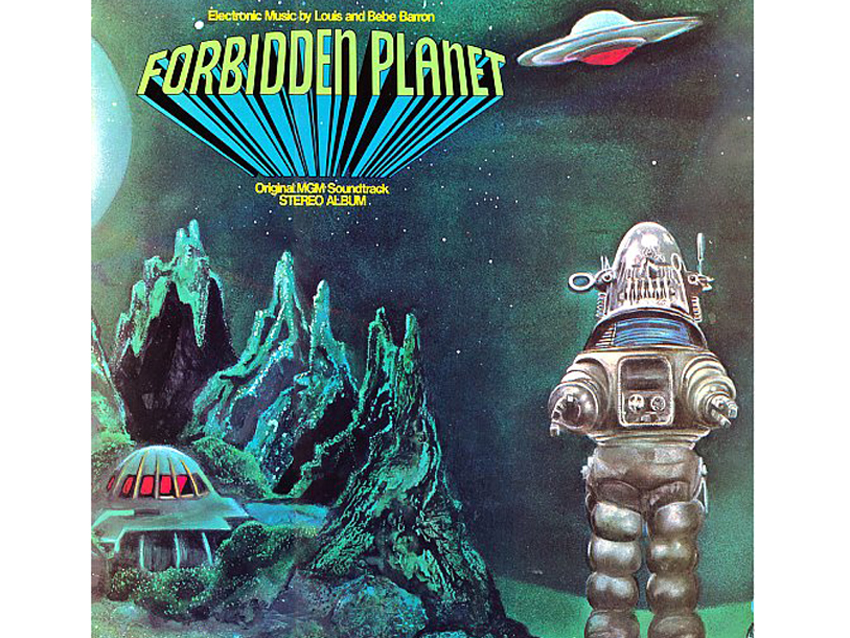
Forbidden Planet (1956)
Brandon: “That’s Louis and Bebe Barron. They were discovered in a beatnik club by the producers of the film. After their whacked-out electronic set, one of the producers went up to them and said, ‘I want you to score my new film.’ Just like that he put them on the picture and fired the composer he had already hired.
“It’s the quintessential assortment of squeaks and pops and blurps and all kinds of weird sounds – and this is predating the Moog synthesizer. No Theremin on it either; this is real patch bay work for making music.
“There’s a cue on it called Love At The Swimming Hole that I tried to convince my wife should be the first dance at our wedding. She wouldn’t go for it.”
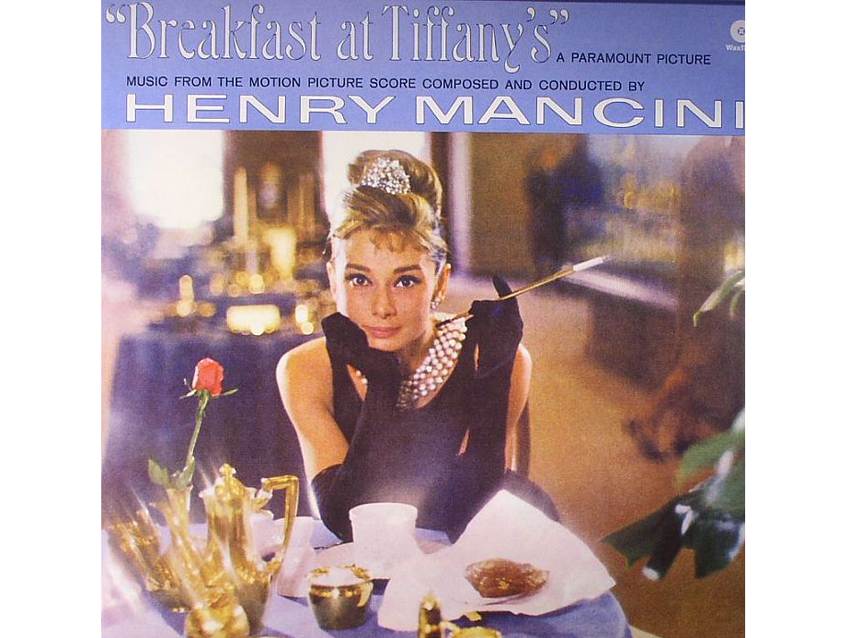
Breakfast At Tiffany's (1962)
Kristian: “I love this score, and like a lot of people, I imagine, I heard it way before I even saw the movie. It’s classic Henry Mancini, who’s one of the greatest film composers of all time.
"What’s great about this score is that it works as an album – you don’t even have to see the movie to love it. It’s super laid-back, and of course, it’s got Moon River on it. Can you believe that the song was almost cut from the movie? The near misses in the bureaucracy of art could fill another list, and this one would be on there as well.”
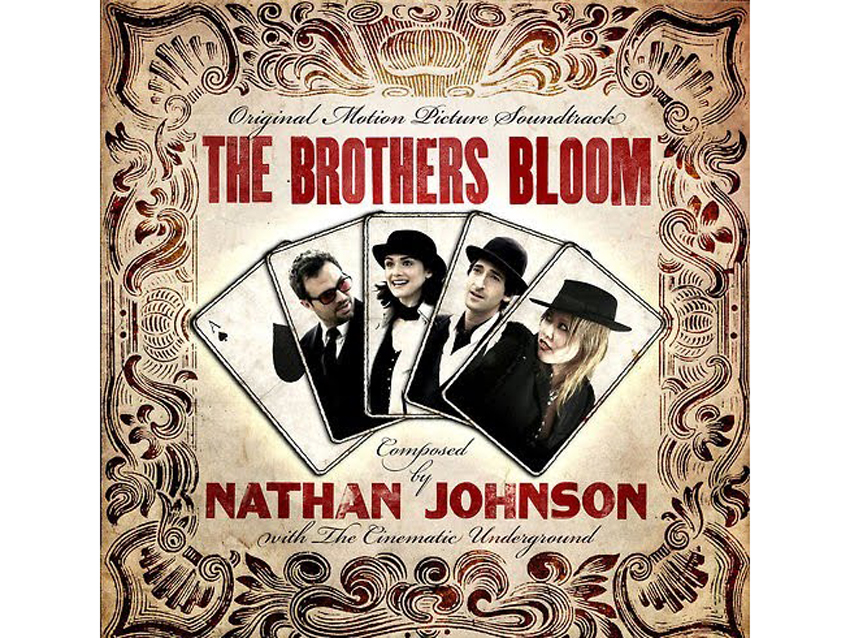
The Brothers Bloom (2008)
Brandon: “The movie is a bit of a fantasy, with Adrian Brody and Mark Ruffalo as these killer-cool brothers. In my mind, the superstar version of Kristian and me are these two guys.
“The composer, Nathan Johnson, had a band called the Cinematic Underground. When I heard them, a little bell rang deep inside of me and was like, ‘This is the kind of music that I want to make.’ It’s music for movies that don’t have a movie. I kept wondering why this guy wasn’t scoring films – the name of the band and the fact that he’s so super talented. Well, as it turned out, his cousin is a director and got him his first break, and now he’s scoring films.”
“Nathan did a few film scores before this, but here he hits his stride. It’s a small ensemble – I think he calls it a “back porch band” – a very simple yet effective approach. We have to steal that idea.” [Laughs]
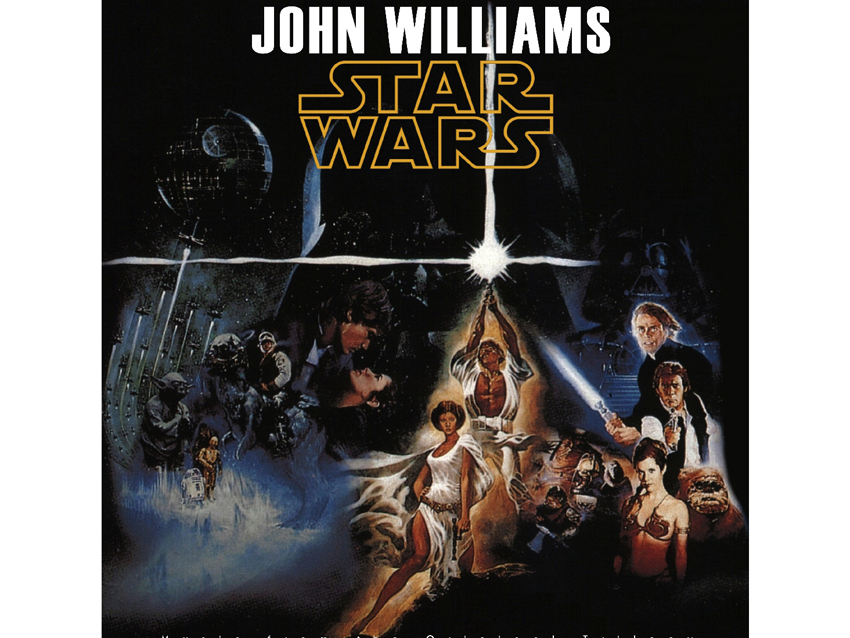
Star Wars (1977)
Kristian: “There’s a couple of reasons for picking Star Wars: One, because it’s still awesome. And two, because I was seven years old when I first saw it. But the awesome-ness is definitely the big reason; the awesome-ness lives on.
“With Star Wars and Peter And The Wolf before it, I finally figured out that characters have themes. Every time Dark Vader appears on the screen, there’s that music – it announces him. The good guys have their own themes too.
“There’s a cool tension and release to the score. Hearing modulation and the way that John Williams would take this music and cram it into emotions that weren’t always clear – what a great way to learn the building blocks of creating a film score.”
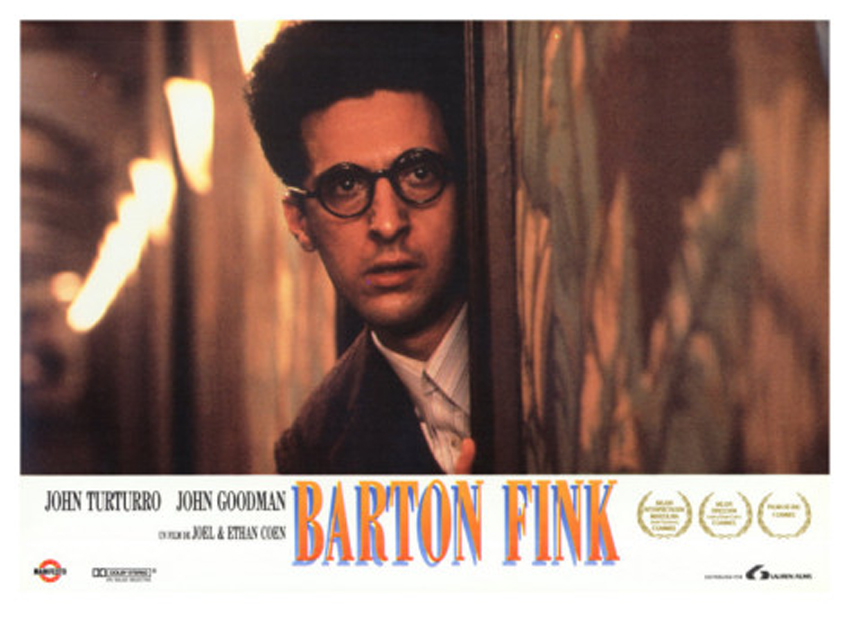
Barton Fink (1991)
Brandon: “I’m a big Carter Burwell fan. There’s so many of his scores to choose from, but I went with Barton Fink because it’s like a fake-out. When I first saw it, I thought, ‘Is there a score? I thought they always used Carter Burwell.’ And then I realized, ‘ Wait a minute… Not only is there a score, but it’s done so carefully and with such a light touch that you almost don't notice it.'
"That's not to say that it doesn't work, though. Sound design is the star here. Carter Burwell’s ability to weave in and out of the sound design is something that I think I’ll study for the rest of my life. For me, this is the benchmark of how to write less music to achieve greater impact.”
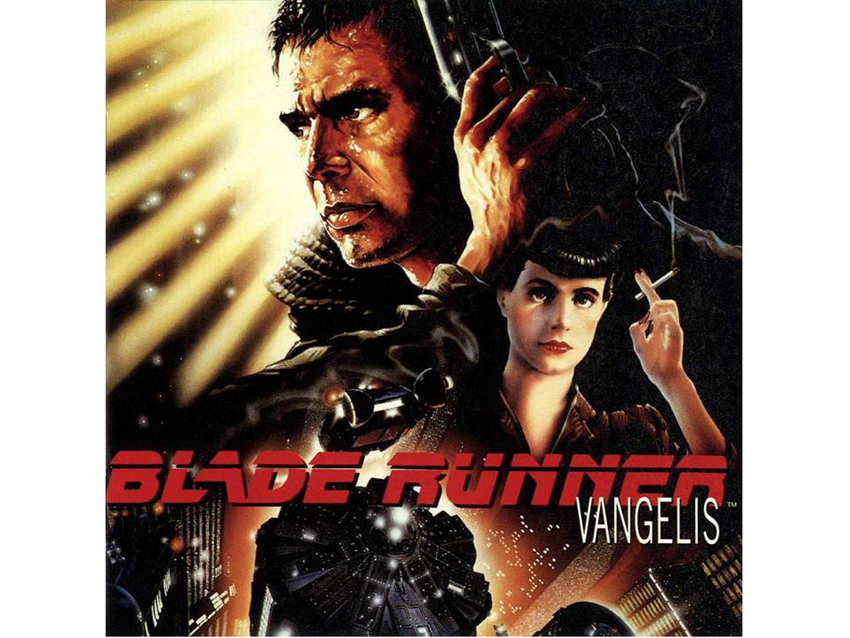
Blade Runner (1982)
Kristian: “We had to pick a Vangelis score. We could’ve gone with Chariots Of Fire, but we figured Blade Runner was the way to go.”
Brandon: “We’re such children of the ‘80s. Being a keyboard player, I would drool over the latest synth and the newest, greatest whatever it was. This soundtrack, visually to me, is Vangelis in the midst of racks and racks and racks of synthesizers, all of them at arm’s reach. He made all of these amazing sounds, and as soon as it got totally dark and crazy, he’d add a new layer to it and it would get even stranger.”
Kristian: “His setup these days is crazy. In 1993, he stopped evolving his technology in order to concentrate on creating music. He’s got a series of 19 to 25 volume pedals on the ground, and all of his sounds are triggered simultaneously from a Hammond keyboard. Each part of the keyboard has been mapped – part of it’s rhythm, part of it’s orchestrated, part of it’s strings and so on. It’s pretty remarkable to watch him work with this setup.”
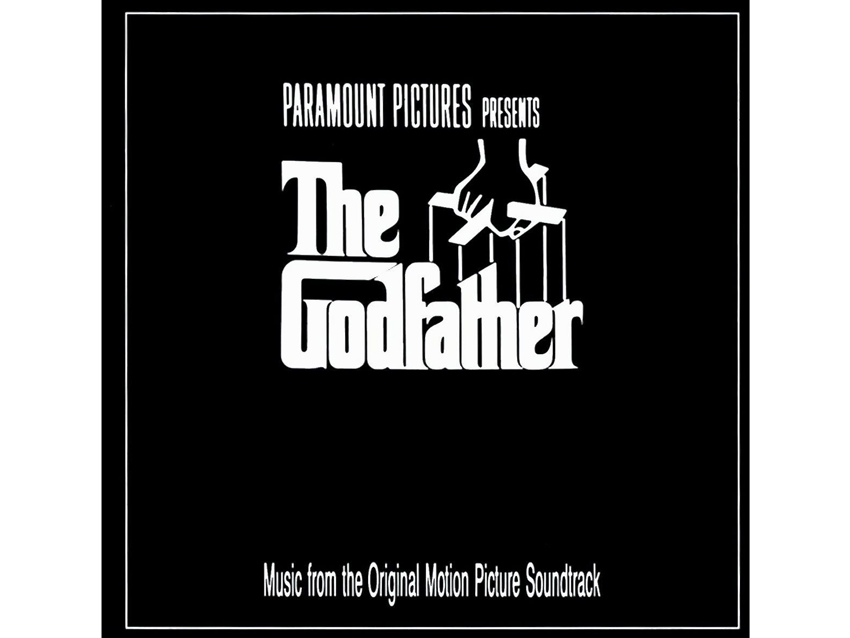
The Godfather (1972)
Kristian: “You can never get enough Godfather, as far as I’m concerned. What full, beautiful melodies – not just little musical cues, but entirely fleshed out songs.”
Brandon: “Nino Rota’s work with Fellini is astounding, but what he did with The Godfather, particularly with the Love Theme From The Godfather, just stands apart from everything else. In that one piece of music, it says everything about the film: It gives you the time, the location, the story, the characters – it’s all right there. It evokes passion, tragedy, drama – it lulls you in even if you know something really bad is going to happen.”
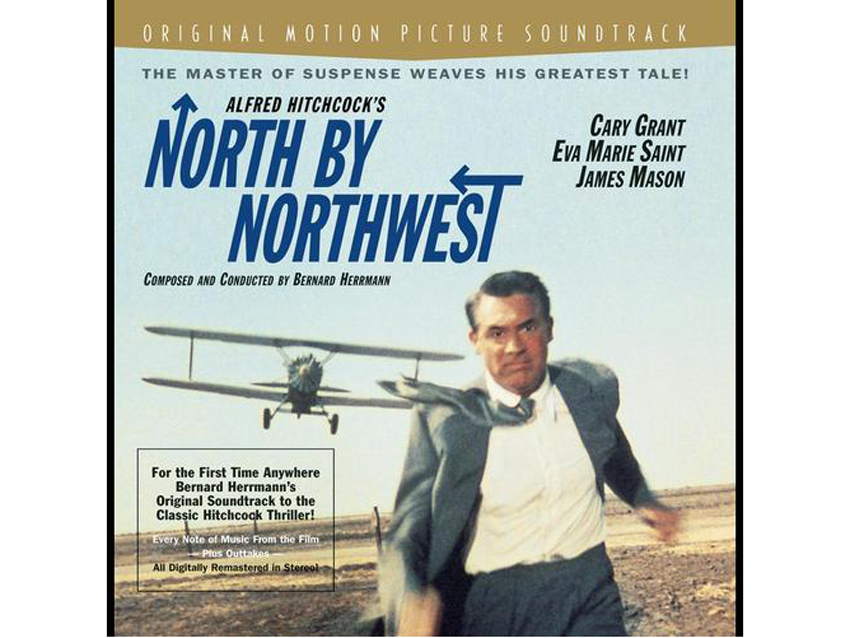
North By Northwest (1959)
Brandon: “There’s so many Bernard Herrmann scores to choose from, but this one is probably my favorite. I’ve studied Psycho a lot because it’s only strings, and I love limitations. North By Northwest is vastly different from that one and succeeds on many different levels.
“It’s almost an American opera. The music is the star, and it does such a good job of being a full, present character in the movie. In my mind, it feels as if Hitchcock, having worked with Hermann so much, just gave him free rein to do whatever he wanted.”
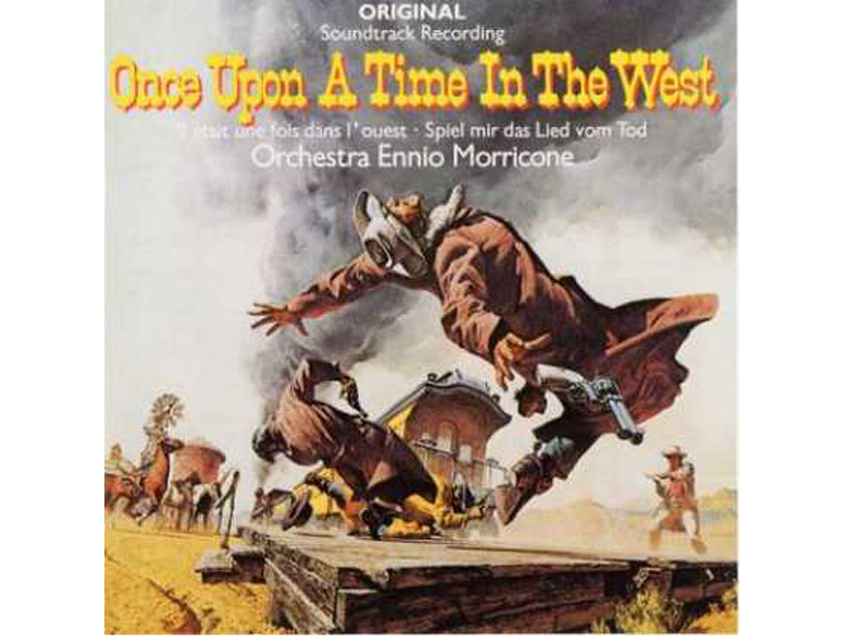
Once Upon A Time In The West (1968)
Brandon: “I listen to Once Upon A Time In The West maybe once a week. I want to be a little more heroic in my life, and this score is perfect for my motivation. I’m such an Ennio Morricone freak; if I could have my way, I’d have a synth band playing nothing but Morricone music in Japan for the rest of my life.
“Interestingly, the entire score was written before the movie was shot. Ennio Morricone and Sergio Leone were so in sync with each other – and Leone had said that he was done with the spaghetti Westerns at this point; the studio kind of threw this one at him – that Morricone just sent him the music without even knowing what the film would be. Leone played the music to the actors on the set. The emotional dots were done before they even shot a second of film.
“’Go ahead and make a movie that sounds like this’ – talk about a great composer. And it turned out to be one of the greatest Westerns and one of the greatest scores.”

Joe is a freelance journalist who has, over the past few decades, interviewed hundreds of guitarists for Guitar World, Guitar Player, MusicRadar and Classic Rock. He is also a former editor of Guitar World, contributing writer for Guitar Aficionado and VP of A&R for Island Records. He’s an enthusiastic guitarist, but he’s nowhere near the likes of the people he interviews. Surprisingly, his skills are more suited to the drums. If you need a drummer for your Beatles tribute band, look him up.









